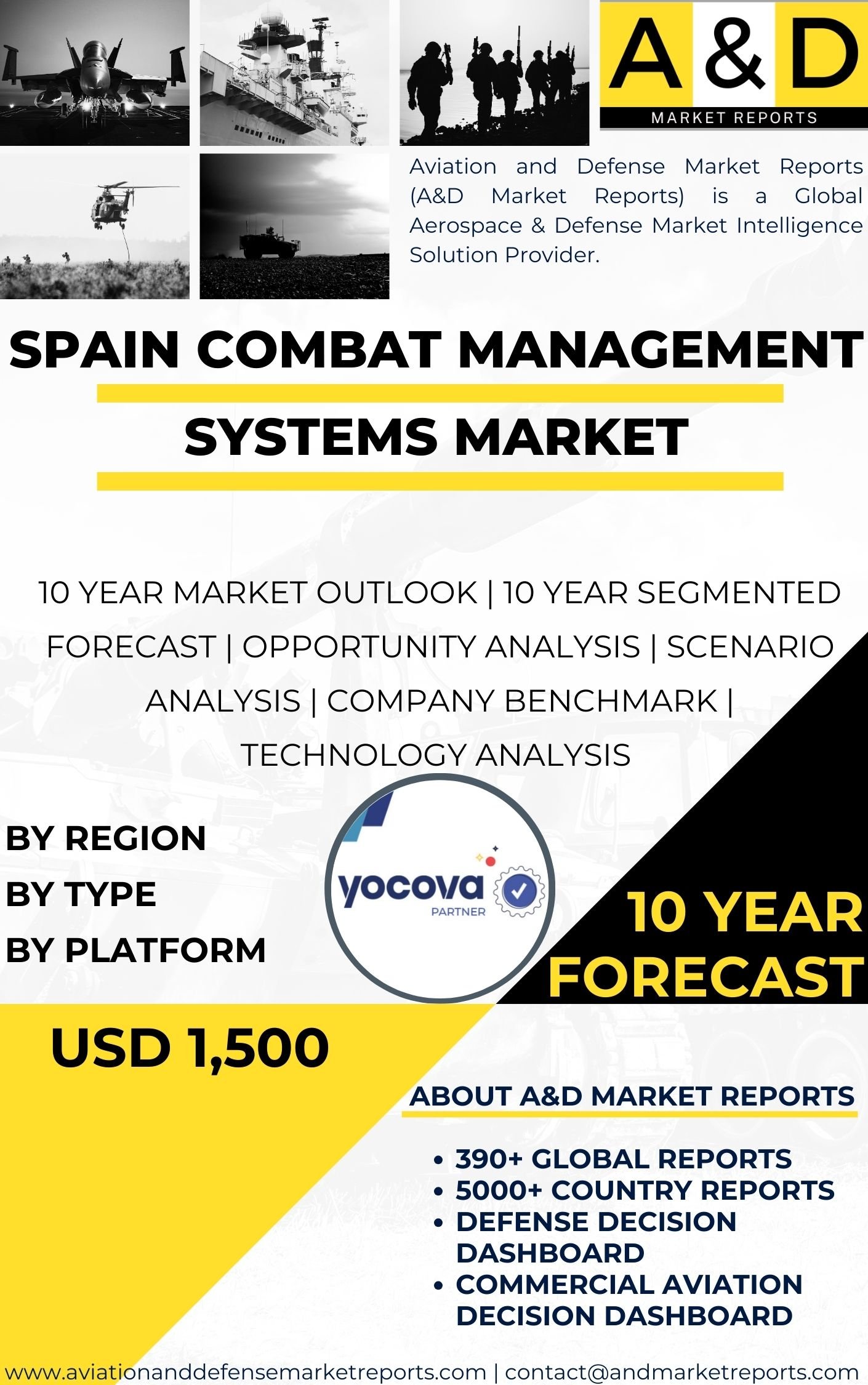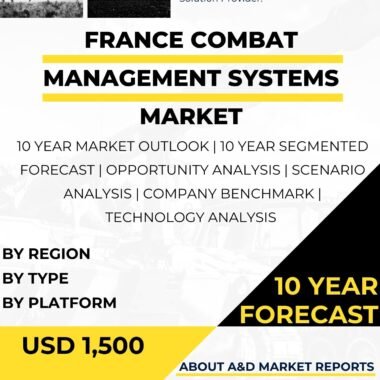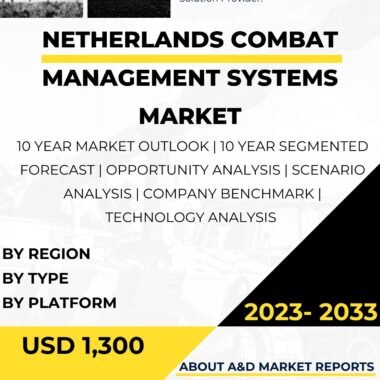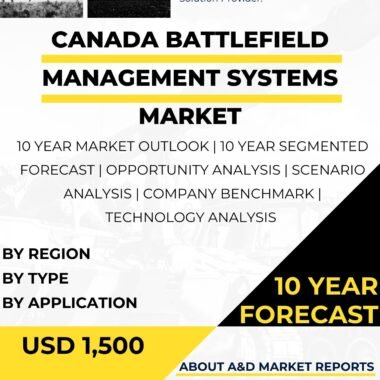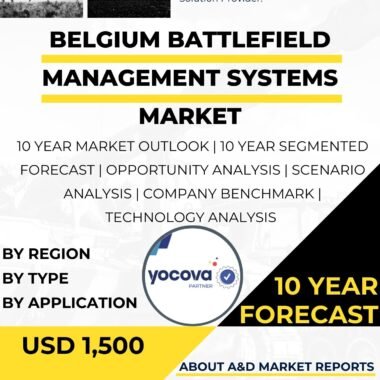Description
The combat management systems (CMS) market in Spain is a critical aspect of the country’s defense industry, providing advanced command and control capabilities to effectively manage and coordinate military operations across various domains. Combat management systems are central to modern warfare, enabling military commanders to integrate information from multiple sensors, communicate with forces in real-time, and make well-informed decisions during complex and dynamic situations.
Spain recognizes the strategic importance of combat management systems in maintaining a credible defense posture and safeguarding its national security. As a NATO member and a European nation, Spain also plays an active role in contributing to regional security and participating in international peacekeeping efforts.
The adoption and modernization of combat management systems in Spain are driven by several factors, including changing security dynamics, advancements in technology, defense policies, international collaborations, and the need to address a diverse range of security challenges.
The Spanish defense industry plays a critical role in meeting the country’s combat management system requirements. Domestic companies, such as Indra Sistemas and Navantia, are actively involved in the development and integration of CMS solutions for the Spanish Armed Forces. These companies leverage their expertise in communications, information technology, and defense systems to deliver state-of-the-art combat management systems tailored to Spain’s specific defense needs.
International collaborations are also essential for Spain’s combat management systems market. Many cutting-edge CMS technologies are developed and manufactured by international companies with extensive experience in military command and control systems. Spain collaborates with these suppliers to acquire and integrate CMS into its military operations. Joint ventures and technology transfer agreements enable the Spanish defense industry to contribute to the development of CMS technologies while benefiting from international expertise.
The adoption and development of combat management systems in Spain are driven by continuous technological advancements. The CMS industry is characterized by ongoing innovation, with improvements in sensor integration, data analytics, and decision support systems. Advancements in artificial intelligence and machine learning have also enhanced the capability of CMS to process and analyze vast amounts of data in real-time, providing military commanders with valuable insights to make timely and informed decisions.
Moreover, the increasing complexity of modern warfare and the need for joint and multinational operations underscore the importance of integrated combat management systems. Spain’s participation in multinational military operations requires seamless interoperability with allied forces, necessitating CMS that can communicate and share information effectively with partners from different nations.
Budgetary considerations are a significant factor in the combat management systems market. Spain’s defense spending is subject to economic conditions and government priorities, which can influence the acquisition and modernization of CMS technologies. Balancing the allocation of resources between acquiring new CMS and maintaining existing capabilities requires careful planning and prioritization.
The evolving nature of security challenges also influences Spain’s combat management systems market. CMS technologies must adapt to address asymmetric threats, cyber warfare, and other emerging security risks. Ensuring the resilience and cybersecurity of CMS systems is essential to maintaining operational effectiveness and protecting sensitive information.
Spain’s commitment to international arms control agreements also influences its approach to the combat management systems market. Ensuring compliance with export regulations and security standards is essential for facilitating international cooperation and maintaining regional stability.
The use of combat management systems in Spain’s defense operations is not without challenges. Military commanders and personnel must undergo comprehensive training to effectively operate and utilize CMS technologies. Additionally, the integration of CMS with existing military platforms and systems requires careful planning and coordination.
In conclusion, the combat management systems market in Spain is a critical component of the country’s defense industry. Combat management systems provide advanced command and control capabilities to effectively manage military operations and safeguard national security. The market encompasses a wide range of CMS technologies, including advancements in sensor integration, data analytics, and decision support systems. Collaboration between domestic companies and international suppliers enables Spain to access advanced CMS technologies while contributing to their development. Technological advancements, international collaborations, budgetary considerations, and compliance with international arms control agreements are all factors influencing the Spanish combat management systems market. As the Spanish Armed Forces continue to prioritize the adoption and modernization of CMS technologies to address diverse security challenges, the market will remain a key focus in enhancing Spain’s military capabilities and command and control capabilities to effectively manage military operations and safeguard national security.
